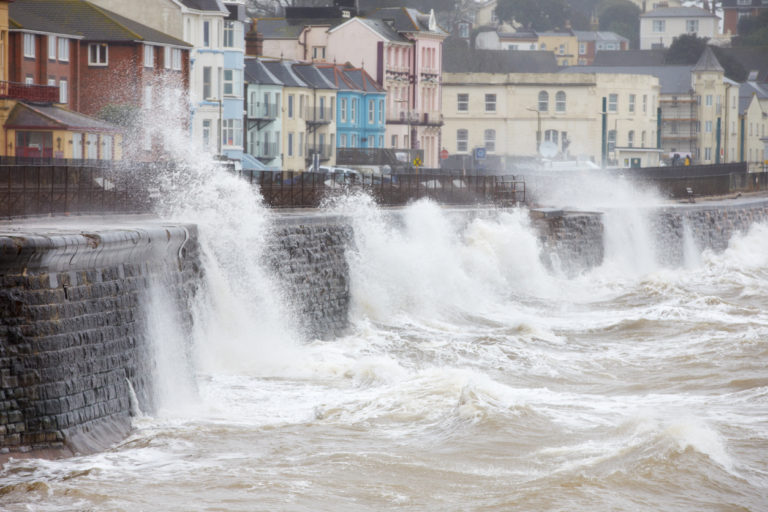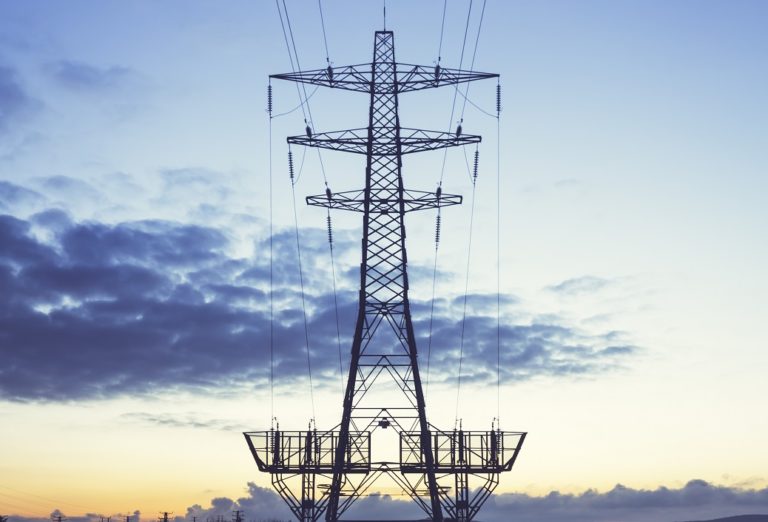Energy & Net Zero
New renewable energy infrastructure is central to delivering a low cost, zero carbon future.
Updated:
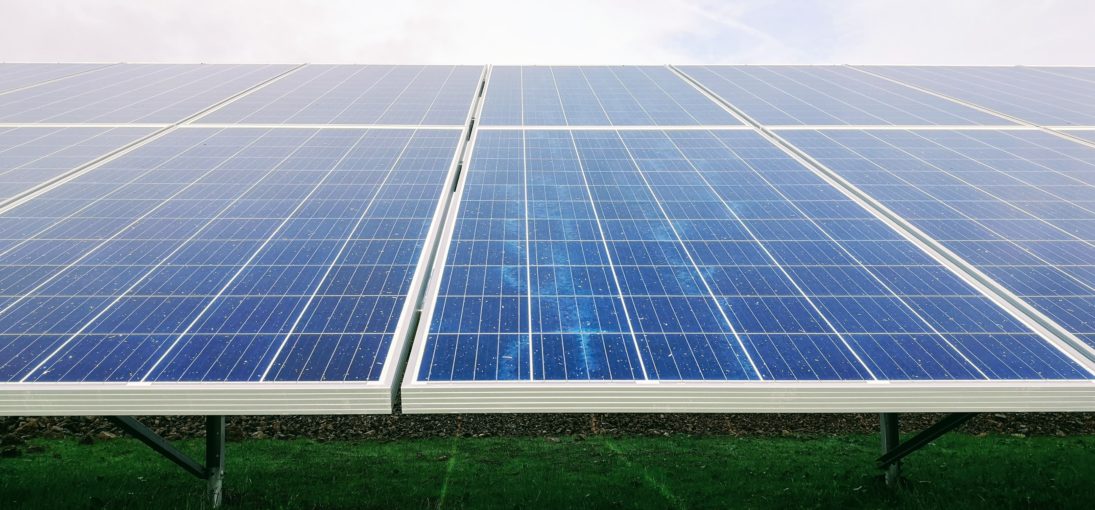
Summary
Infrastructure delivers power and heat to homes and businesses.
Our current energy system, which is still largely based on fossil fuels like natural gas, contributes to climate change. In 2021, around 30 per cent of UK greenhouse gas emissions come from generating electricity and heating buildings.
Switching to renewable electricity sources, upgrading electricity networks to support increased electrification, deploying charging infrastructure for electric vehicles, and changing the way we heat our homes are historic shifts. They present both challenges and opportunities for government and industry.
The Commission advises government on how to best support and regulate the energy sector to deliver the changes necessary for meeting the UK’s net zero goals.
The Commission has an objective to support the transition to net zero carbon emissions by 2050. Reaching this target was one of the three strategic themes that shaped the Commission’s work in the Second National Infrastructure Assessment.
The second Assessment makes a series of recommendations in response to four key challenges in energy and reaching net zero:
- the further decarbonisation of the electricity system
- creating a viable path for heat decarbonisation
- enabling the rapid rollout of electric vehicles
- funding and delivering the new networks needed for hydrogen and carbon capture and storage.
Energy & net zero data
A range of energy and net zero related datasets is available to review on our Data pages. This includes data sets used in Commission reports, as well as historic data sets. Each can be reviewed online or downloaded.
Review dataNext Section: Key issues
Here you will find a summary of the Commission’s position on key issues emerging from our work related to energy and net zero
Key issues
Here you will find a summary of the Commission’s position on key issues emerging from our work related to energy and net zero
A renewable, flexible secure energy system
In 2021, generating electricity emitted around 55 MtCO2e, 13 per cent of all UK greenhouse gas emissions.
The Commission continues to believe that a highly renewable system is the best way to deliver low cost, low carbon electricity. Government will need to accelerate the deployment of renewable generation, such as onshore wind, offshore wind and solar.
Renewable electricity will need to be supported by flexible technologies that can provide electricity if the sun isn’t shining or the wind isn’t blowing.
Policies should support the deployment of electricity storage, demand side response and incentivise investment in large scale hydrogen and gas with carbon capture and storage power stations. Policy will also be needed to curtail and eventually stop the use of unabated gas.
More demand for electricity also means more investment will be needed in transmission and distribution networks. This must keep pace with demand to support the decarbonisation of the electricity sector, as well as other sectors like transport and heat.
Decarbonising heat
In 2021, heat for residential, public sector and commercial buildings emitted around 90 MtCO2e, 20 per cent of all UK greenhouse gas emissions. This primarily comes from the use of natural gas or oil in boilers.
The majority of English homes – 88 per cent – are reliant on natural gas for heating. To deliver the UK’s emission reduction targets, around 8 million English buildings will need to switch from gas or oil boilers to electrified heating such as heat pumps by 2035, and all buildings will need to move away from fossil fuel heating by 2050.
Encouraging this many households and businesses to switch to heat pumps is challenging. But it will be achievable, with enough support from government to support households and businesses to make the switch.
Government will need to:
- support households and businesses to reduce their energy demand
- fund the transition to low carbon heat across the public and social housing sectors and for households on lower incomes
- improve the incentives for small businesses, homeowners and landlords to switch to low carbon heat
- rule out providing public support for deploying hydrogen heat in buildings
- plan for phasing out fossil fuel heat, including decommissioning the gas grid.
New networks for hydrogen and carbon capture and storage
Around ten per cent of fossil fuel demand across the economy is driven by industry. These fossil fuels will need to be replaced by, predominantly, electricity or hydrogen or abated using carbon capture and storage.
To enable this, new hydrogen and carbon capture and storage infrastructure will be needed. This infrastructure will also be essential for delivering a flexible decarbonised electricity system and carbon capture and storage will, additionally, be key to facilitate engineered greenhouse gas removals [link to key issue 5].
Networks that connect multiple producers, users and stores of hydrogen, and emitters and stores of carbon in different parts of the country will provide benefits that would not exist with point to point pipelines.
The core networks should be delivered by 2035, using the following levers:
- development expenditure, to enable front end engineering design studies
- finalising business models, to manage the revenue risk projects will face
- eestablishing regulatory and governance systems, codes and standards
- designating an independent system operator for each network.
The initial carbon capture and storage system should have capacity to store at least 50MtCO2e per year by 2035 and the core sites should cover Grangemouth and North East Scotland, Teesside, Humberside, Merseyside, the Peak District and Southampton.
The core hydrogen transmission network should connect Grangemouth and North East Scotland, Teesside, Humberside, Merseyside and South Wales.
Deploying engineered greenhouse gas removals at scale
To achieve net zero, all sectors must eliminate or offset their emissions. Efforts to eliminate emissions are vital to deliver net zero. But for sectors like agriculture and aviation, there are no available technologies that can eliminate all emissions. This means net zero will not be possible without greenhouse gas removals that can offset emissions.
Engineered greenhouse gas removals will become a major new infrastructure sector in the UK over the coming decades. It could have revenues of £2 billion by 2030, and in the tens of billions by 2050. In the long term, polluting industries, not taxpayers, should bear these costs, paying for the engineered removals they need in a competitive market. But the costs should be phased in over time, and vulnerable or disadvantaged groups in society should be protected.
In the Commission’s 2021 study Engineered greenhouse gas removals, we set out policy recommendations to support the deployment of engineered greenhouse gas removals in the UK. In the near term, government will need to support providers to bring a portfolio of engineered removals projects to commercial readiness. However, in time, government should support the transition to a competitive market.
Delivering greenhouse gas removals will also depend on having carbon transport and storage markets in place in time.
Enabling the rapid rollout of electric vehicles
Increasing the adoption of electric vehicles will be key to decarbonising surface transport. Electric cars and vans are the future of road transport. As well as being zero emission, they are cheaper to run and create less air pollution.
Consumers will only purchase electric vehicles if they are confident they can charge them when they need to. The government expectation of 300,000 public chargers being available by 2030 should deliver this, but to meet this expectation, the number of public charge points installed annually must continue to grow at around 30 per cent per year. To ensure zero emission vehicle take up is viable, charge point provision must be spread across the country to support journeys of all types.
The government’s main policy to drive the transition to electric vehicles is the zero emission vehicle mandate. However, the Commission’s review of the government’s decarbonisation plans highlights uncertainties in delivery of desired emissions reductions. There is uncertainty in the speed of the transition of the car and van stock to zero emission vehicles, the fuel efficiency of the remaining petrol, diesel and hybrid vehicles and future traffic demand.
Headline recommendations
Generating flexibility
Government should target a total of 60GW of short duration flexibility by 2035. Government should introduce policy in 2024 to enable this, ensuring all viable technologies have a route to market.
Support hydrogen fired generation
Government should by 2024 have in place a business model to support hydrogen fired generation and ensure that by 2030 multiple large scale power stations are deployed for both gas generation with carbon capture and storage and hydrogen fired generation. By 2035, deployment of low carbon gas generation should be sufficiently scaled to provide 30TWh of persistent flexible generation to manage the potential for prolonged shortfalls during winter
Hydrogen storage
Government should target establishing a minimum of eight TWh of large scale hydrogen storage to be in operation by 2035
Phasing out unabated gas generation
Government should phase out unabated gas fired generation so that it generates less than two per cent of electricity by 2035, and prevent unabated gas power stations from operating in the wholesale, balancing and capacity markets by 2040 at the latest. Actions to deliver this should include:
- ensuring that carbon capture and storage enabled and hydrogen fired electricity generation stations deploy ahead of unabated gas power stations, through a combination of carbon pricing and emissions limits on new and existing unabated gas power stations
- shortening the length of future capacity market contracts for unabated gas power stations from the 2025 auction round, ensuring that these contracts do not extend beyond 2040, allowing the Independent System Operator to turn on unabated gas power stations ‘in extremis’ to ensure security of supply.
Transformational change in network architecture
Government should reform governance arrangements to enable the transformational change in network infrastructure that will be required to support a decarbonised electricity system, including:
- completing the setup of the Independent System Operator by the end of 2024, and ensuring it has the duties, tools and access to data necessary to plan and manage interactions between energy vectors
- ensuring the Independent System Operator has a duty to develop and maintain a strategic spatial energy plan, with the first version of this plan in place by 2025 and updated regularly
- providing strategic clarity to Ofgem through the Strategy and Policy Statement by the end of 2023 on the need for investment in electricity distribution and local flexibility solutions ahead of need that are sufficient to meet the demands of electric vehicles and heat pumps implied by carbon budgets
- establishing the Regional System Planners proposed by Ofgem in time to inform the next electricity distribution price control in 2028.
Strategic energy reserve
Government should develop a strategic energy reserve to support resilience to economic shocks. To deliver this, legislation should be introduced to give the Secretary of State powers to establish and control the reserve. Government should take the necessary actions to develop a reserve that can be used to generate 25TWh of electricity in 2040, and then maintain it at this level.
Reduce energy demand from buildings
Government should reduce energy demand from buildings by:
- extendingthe Social Housing Decarbonisation Fund to deliver £5.1bn of capital spending on energy efficiency improvements between 2024 and 2030 and devolve directly to local authorities to deliver the programme
- continuing the obligation on energy companies to install energy efficiency improvements in households on lower incomes, delivering £8.8bn of capital spending between 2024 and 2035
- providing zero per cent financing for households and small businesses for the cost of energy efficiency installations
- setting out, by the end of 2025, a plan to tighten and enforce minimum standards in the private rented sector.
Commit to long term funding to deliver low carbon heat
Government must commit long term funding to deliver low carbon heat across the public sector estate, social housing and for households on lower incomes by:
- allocating £28.9bn between 2024 and 2050 to deliver low carbon heat and energy efficiency improvements in the public sector estate, including across devolved administrations, and 75 per cent of this funding should be committed to 2035
- allocating £33.8bn between 2024 and 2050 to deliver low carbon heat in the social housing sector, and devolve funding to deliver the programme, and 35 per cent of this funding should be committed to 2035
- allocating £41.7bn between 2024 and 2050 to deliver low carbon heat to all other households on lower incomes, and 35 per cent of this funding should be committed to 2035.
Support seven million buildings in England to switch to a heat pump or heat network by 2035
To support seven million buildings in England to switch from fossil fuel heating to a heat pump or heat network by 2035, government should incentivise building owners, including private landlords by:
- providing a subsidy of £7,000 per property owner for installing a heat pump or connecting to a heat network from 2024, with information published on how this subsidy will reduce over time as take up increases and installation costs fall
- providing zero per cent financing for the upfront costs above the subsidy
- taking policy costs off electricity bills and ensuring the cost of running a heat pump is lower than the cost of running a fossil fuel boiler
- making the process of installing a heat pump or low carbon heat network as fast and simple as possible.
Government should not support the rollout of hydrogen heating
Government should not support the rollout of hydrogen heating. Infrastructure solely for hydrogen heating should not be eligible for support under the hydrogen transport business model and today’s gas users should not be expected to pay for the conversion of natural gas infrastructure to transport hydrogen through existing price controls
Government should plan for the end of the use of natural gas
Government should plan for the end of the use of natural gas for heat by:
- banning new connections to the gas network from 2025
- regulating, by 2025, to end the use of fossil fuel heating in commercial buildings over 1,000m2 by 2035
- ending the sale of all new fossil fuel boilers in 2035
- making provisions for the process of disconnecting customers and decommissioning, or repurposing, the gas network
- establishing a mechanism for local democratic input into decommissioning plans
- working with Ofgem and the Health and Safety Executive on a plan to ensure the switch is safe and efficient and that consumers in vulnerable circumstances are protected.
Accelerate the deployment of electric vehicle public charge points
Government must accelerate deployment of electric vehicle public charge points to reach its expectation of 300,000 public charge points by 2030 and keep pace with sales of electric vehicles.
Establish a monitoring and review regime for transport decarbonisation plans
Government should, by 2025, establish a monitoring and review regime for its transport decarbonisation plans that reflects the uncertainty in carbon emissions outcomes from surface transport. The need for action to ensure decarbonisation targets are met should be reviewed annually, and all relevant information made publicly available. Carefully designed, adaptive policies that can be introduced, if necessary, should be prepared as part of the work on the integrated transport strategy.
Actively encourage industrial decarbonisation at speed
Commit to the development of a carbon transmission pipeline and storage network
Government should commit to the development of a carbon transmission pipeline and storage network that can transport and store at least 50MtCO2e per year by 2035. The actions needed to deliver this are:
- setout a vision for an initial core network by the end of 2024, including clear identification of the key sites and routes. Based on current evidence, the Commission proposes the key sites for the core network should be Grangemouth and North East Scotland, Teesside, Humberside, Merseyside, the Peak District and Southampton
- support development expenditure costs for front end engineering design studies to bring projects in the core network to the point where they could apply for development constent
- Establish a process beyond the existing allocation rounds (track one and two) for awarding regulatory asset base contracts for the build and operation of the core network. There should be the option of awarding business model contracts to pipeline and storage projects separately
- Designate a system operator with a duty to efficiently manage the network and ensure network codes and governance arrangements are established in a manner fit for this purpose
- Set out how decisions will be taken to add additional pipeline routes or stores to the core network, including timings and the decision making criteria for awarding development expenditure in the shorter term and business model contracts at a later date.
Develop a core hydrogen pipeline network
Government should commit to the development of a core hydrogen pipeline network that is operating no later than 2035. The actions needed to deliver this are:
- Set out a vision for an initial core network by the end of 2024, including clear identification of the key sites and routes. Based on current evidence, the Commission proposes the key sites for the core network should be Grangemouth and North East Scotland, Teesside, Humberside, Merseyside and South Wales
- Support development expenditure costs for front end engineering design studies to bring projects in the core network to the point where they could apply for development consent
- Expedite delivery of the planned business model for hydrogen pipeline networks which must include clarity on the process and timings for projects to receive business model support
- Designate a system operator with a duty to efficiently manage the network and ensure network codes and governance arrangements are established in a manner fit for this purpose
- Set out how decisions will be taken to add additional pipeline routes to the core network, including timings and the decision making criteria for awarding development expenditure in the shorter term and business models at a later date.
Latest Updates
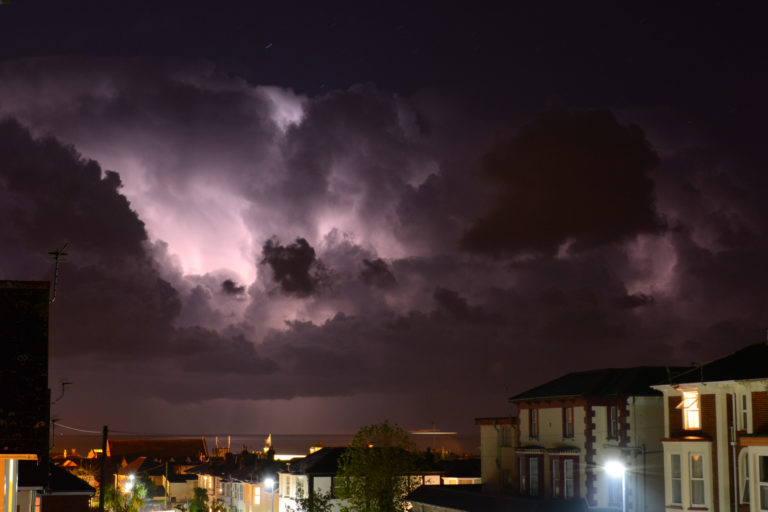
Adverse weather scenarios for future electricity systems: long duration events

James Richardson speech to WEETF event on the hydrogen economy
The following remarks were given by our Chief Economist James Richardson at the Westminster Energy, Environment & Transport Forum event on Creating the hydrogen economy, which took place earlier today. “Hydrogen seems to inspire equal parts optimism and scepticism. Perhaps that’s only to be expected from a new technology. But I thought it would be...
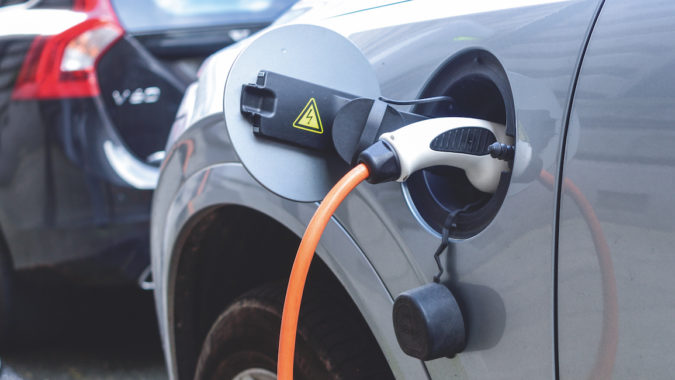
Welcome boost for electric vehicle charging infrastructure
The energy regulator Ofgem has today announced £300m of investment to ensure the UK has the energy infrastructure necessary to support the move to low carbon transport and heating while maintaining secure supplies. This includes new infrastructure to support 1,800 new ultra-rapid charging points at motorway service areas. In response, a National Infrastructure Commission spokesperson...
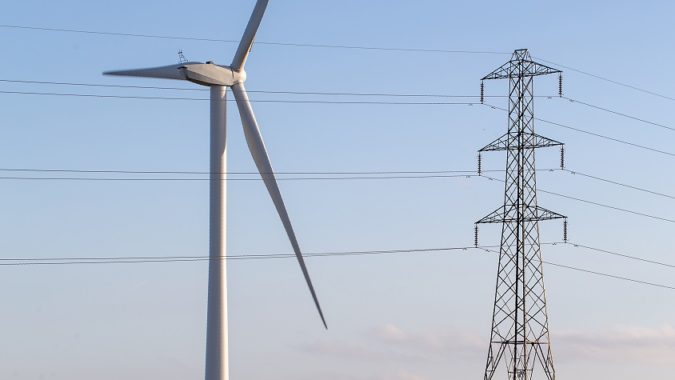
Maintaining operability of highly renewable electricity system possible at little additional cost
Concerns about operating the electricity networks when there are high levels of renewables generation can be overcome without significant costs to the consumer through effective deployment of existing and emerging technologies, according to analysis from the National Infrastructure Commission. The existing electricity network was designed around generation from coal, nuclear and gas-powered generation. Increasing the...
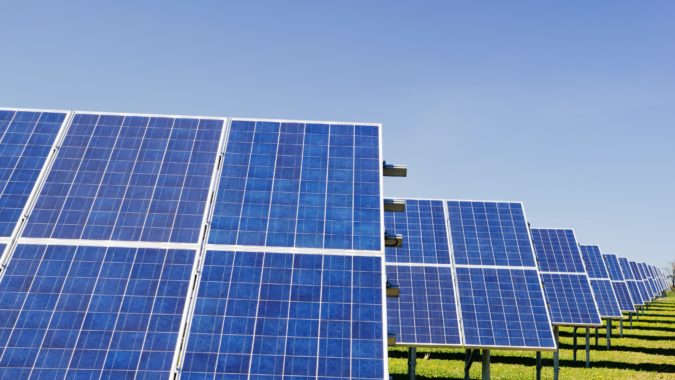
Learning the lessons for a highly renewable future
The last few months have been a busy time for UK energy policy. The government published its long awaited Energy White Paper, The Climate Change Committee produced its 1,000 pages of advice to the government on the level of the next carbon budget, and HM Treasury published its interim report on the costs of the...
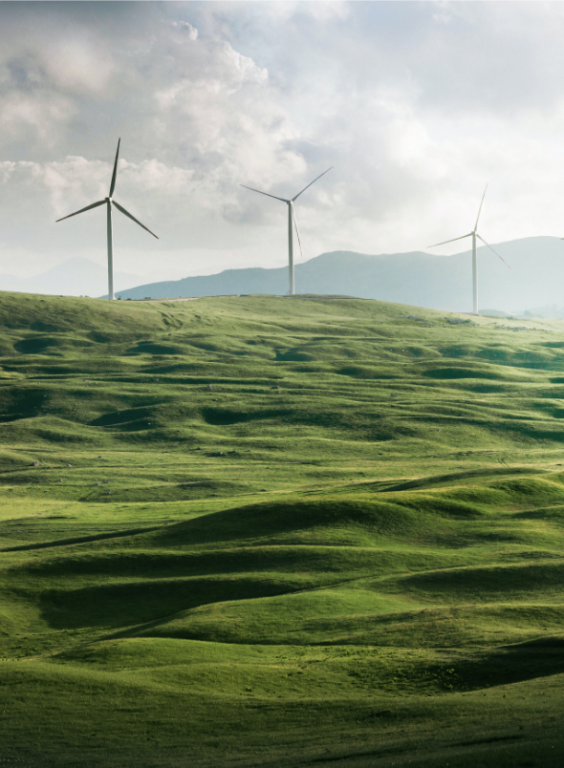
Operability of highly renewable electricity systems
A highly renewable electricity system can maintain a stable supply without adding significantly to the costs of generation.
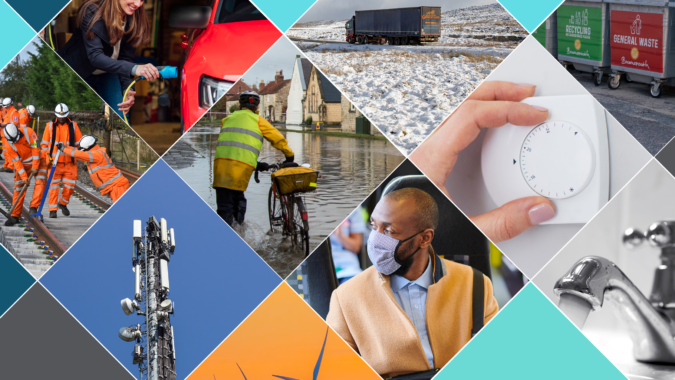
Plans of action needed next to deliver strategic goals, says Commission
Detailed plans for decarbonising energy supply, accelerating the roll out of electric vehicle charge points and connecting hard to reach areas with high capacity broadband are among the next steps needed to ensure government can deliver its aims for levelling up and meeting the net zero target, according to the National Infrastructure Commission. The Commission’s...

Annual Monitoring Report 2021
Our annual assessment of the government’s progress in delivering infrastructure projects and programmes recommended by the Commission.
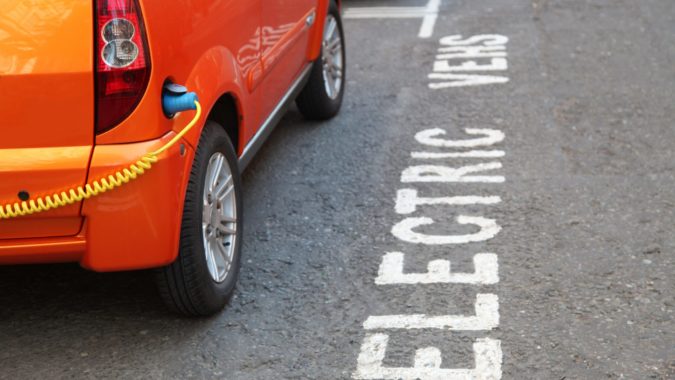
“A vital step and important signal”: Armitt responds to government plans for ‘green industrial revolution’
Responding to today’s announcement by the Prime Minister on government plans for a ‘green industrial revolution’, Sir John Armitt, Chair of the National Infrastructure Commission, said: “A 2030 deadline for the sale of new petrol and diesel cars and vans is a vital step to help the UK meet our net zero target. It’s an...

James Heath: Getting the evidence in place for key decisions on low carbon heat
James Heath, Chief Executive of the National Infrastructure Commission, addressed Utility Week’s ‘Build Back Better’ Forum today (21 October 2020). His speech explored the policy decisions and investment needed to harness the full potential of low carbon heat, setting out the range of evidence that will be required to ensure effective decisions to address the...
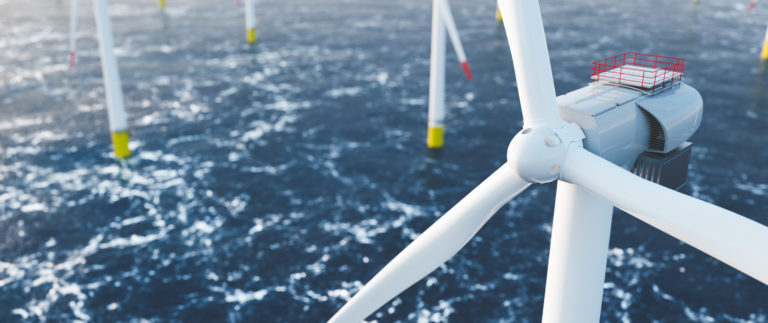
Historic Energy Datasets
The Commission's Historic Energy Dataset provides data on the UK’s energy history spanning back as far as the year 1700.
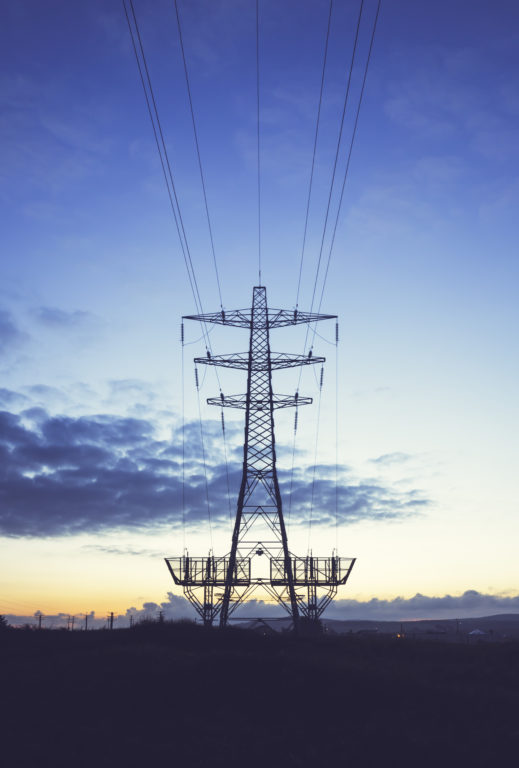
Renewables, Recovery, and Reaching Net Zero
Datasets including modelled projections of electricity system costs, consumer bills, capital investments and energy generation.
